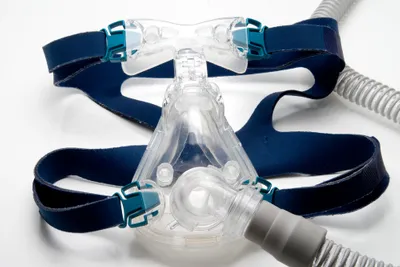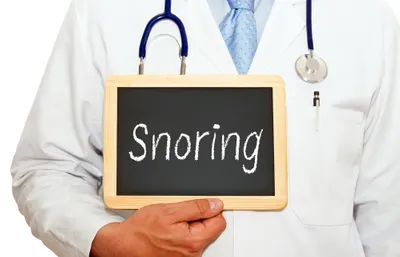You might not consider a wee bit of snoring that detrimental to your health—even though a night of heavy snores may leave you feeling fatigued the next morning or, if you asked your spouse, he or she might attest to the fact that it’s pretty darn annoying. However, despite the more embarrassing affects of snoring, sawing logs has been linked to some serious health issues—ranging from sleep apnea to heart disease, and from depression to early death.
So if you’re guilty of snoring, you may be putting yourself at risk of one of these eight health issues…
1. Obesity
If you carry around some excess weight, particularly around the neck, you may be at risk of sleep apnea, a sleep disorder that restricts breathing for between 10 seconds to several minutes at a time, causing pauses (or apneas), infrequent breathing, and disrupted sleep. Luckily, those who lose the excess weight around the neck typically relieve the symptoms of snoring and disturbed sleep.
2. GERD
GERD, or gastroesophageal reflux disease, is closely linked to sleep apnea for one reason—restricted breathing airways. Just as this causes snoring; it can also cause a sucking motion that backwashes the contents and acid in the stomach upwards into the esophagus, particularly during sleep. Weight loss has a similar soothing affect on GERD symptoms as it does on sleep apnea.
3. Heart Disease
You already knew that sleep apnea could stop your breathing, but you might never have guessed it could stop your heart! However, a sleep study from the Sleep Center at Thomas Jefferson University Hospital in Philadelphia found that patients with sleep apnea doubled their risk of coronary artery disease, high blood pressure, and eventual heart attack.
4. Migraines
It’s quite common for folks who snore or suffer from sleep apnea to also suffer from migraine headaches due to the oxygen deprivation during sleep. This is why medical researchers explain the prevalence of rising from slumber with a morning headache if you snore heavily or suffer from sleep apnea.
5. Arrhythmias
Akin to cardiovascular issues—like high blood pressure and heart attack—patients with sleep disorders, like sleep apnea, are prone to developing arrhythmia (or abnormal heart beat) over time. In fact, multiple sleep studies link sleep apnea to greater instance of atrial fibrillation (a common arrhythmia).
6. Depression
Not only do snoring and sleep apnea rob us of sleep and energy, lack of sleep or insomnia can equally affect mood and mental health. For instance, one sleep study monitored the daytime mental states of 74 snorers and found increased rates of mild depression and anxiety conditions.
7. Incontinence
While not quite making it to bathroom during the daytime is called incontinence, the frequent and overwhelming urge to go at night is known as nocturia, a condition that causes disrupted sleep and loss of bladder control, and most commonly occurs in males over the age of 55 who also suffer from obstructive sleep apnea.
8. Stroke
If you didn’t already have reason to seek help for excessive snoring or sleep apnea, this might convince you. A recent sleep analysis linked snoring to increased risk of carotid atherosclerosis, in which fatty deposits in the neck restrict the arteries and worsen snoring and cause increase potential for a stroke.











